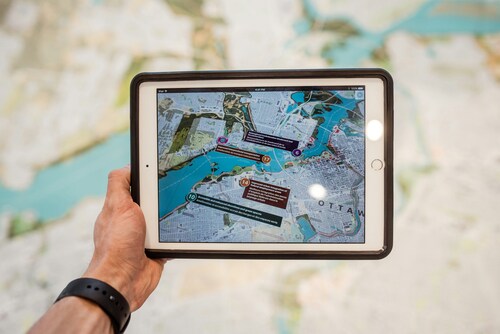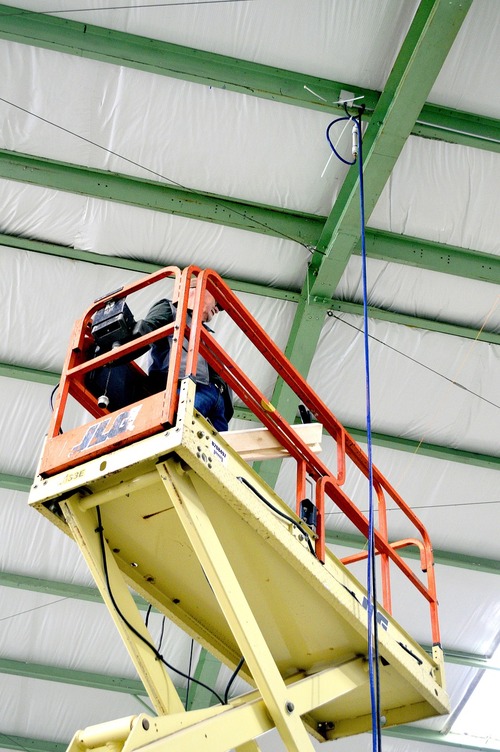Experiencing a vehicle breakdown or accident can be stressful, especially when it requires towing assistance. Knowing how to handle a towing emergency calmly and safely is essential for any driver. Trusted services for Peoria towing provide expert help, but there are key steps every motorist should follow to protect themselves and their vehicle. This guide outlines important safety tips and best practices to ensure a smooth towing experience on the road.
Pulling Over Safely and Activating Hazard Lights
- Find a Safe Spot to Pull Over: Drivers should immediately look for a wide shoulder, rest area, or parking lot to pull their vehicle off the road safely. Avoid stopping on blind curves or narrow lanes where passing traffic has limited visibility. The goal is to minimize risk by moving away from active lanes and reducing the chance of secondary accidents.
- Activate Hazard Lights Immediately: Turning on hazard lights signals other drivers that the vehicle is disabled or stopped unexpectedly. This warning helps approaching motorists slow down and proceed with caution, reducing the likelihood of collisions. Keeping the hazard lights on until the vehicle is safely off the road or help arrives is essential.
- Use Additional Safety Devices: If available, placing reflective triangles or road flares behind the vehicle enhances visibility, especially during nighttime or poor weather. These warning devices should be positioned at strategic distances, typically 10, 50, and 100 feet behind the car, to alert oncoming traffic early. This extra precaution provides an added layer of safety for both the stranded driver and passing motorists.
Communicating Clearly with the Towing Operator
- Provide Exact Location Details: Clear communication about your precise location, using landmarks, mile markers, or GPS coordinates, enables towing companies to reach you quickly without confusion. Being specific minimizes delays and frustration, especially in unfamiliar areas or on busy highways. This information helps dispatchers send the closest available truck.
- Describe the Vehicle and Issue: Offering details such as the make, model, color, and nature of the breakdown prepares the towing operator with the proper equipment and expertise. For example, heavier vehicles or those with special needs require different tow trucks or handling. Accurate descriptions help avoid delays or mismatched service.
- Confirm the Tow Truck Arrival Time: Knowing when to expect help helps drivers stay patient and safe during the wait. It allows them to plan whether to remain in the vehicle or move to a safer nearby area. Confirming arrival times also allows communication if unexpected delays occur.
- Ask About Pricing and Services: Discussing fees, accepted payment methods, and additional services such as roadside assistance or storage ensures transparency and helps avoid surprises. It also gives the driver confidence in the legitimacy and professionalism of the towing company. Being informed beforehand enables better decision-making.
Staying Safe While Waiting for Help
- Remain Inside the Vehicle if Unsafe Outside: In situations with heavy traffic, bad weather, or nighttime conditions, staying inside the vehicle with doors locked provides shelter and reduces exposure to hazards. This protective measure is especially important on busy highways or poorly lit roads. Remaining inside also keeps occupants safer from passing traffic.
- Exit Carefully if Necessary: If it is safe to do so, drivers should move to a secure spot away from traffic lanes, such as behind guardrails or off the shoulder. Standing between vehicles or on the roadway itself poses a significant risk. Choosing a visible and safe area ensures the driver is not in harm’s way while waiting.
- Keep Emergency Contacts Informed: Calling a family member or friend to update them on the situation and location creates an additional safety net. Someone aware of the driver’s status can provide assistance or alert authorities if help does not arrive promptly. This communication adds peace of mind and an extra layer of protection.
Avoiding Scams or Unauthorized Towing
- Use Reputable Towing Companies Only: Choosing licensed, insured, and well-reviewed companies ensures professional and honest service. Researching or calling known providers before emergencies can prevent being taken advantage of in vulnerable moments. Reputable companies follow industry standards and local regulations.
- Verify the Tow Truck and Driver Identification: Asking for proper identification and confirming the company’s name on the tow truck helps confirm legitimacy. Scammers may use unmarked vehicles or refuse to provide credentials, which is a warning sign. Verification protects the driver from unauthorized towing and inflated charges.
- Beware of Upfront Payment Demands: Legitimate towing services typically provide transparent pricing and accept payment after the service is completed. Demands for large deposits or cash-only payments upfront may indicate fraudulent intent. Being cautious about payment protects drivers from financial scams.
Preparing an Emergency Roadside Kit
- Basic Tools and Supplies: A well-stocked roadside kit should include essentials like a flashlight with extra batteries, a reflective vest, jumper cables, and a first aid kit. These items empower drivers to address minor issues and stay safe until help arrives. Having tools ready reduces stress and increases preparedness.
- Emergency Contact Information: Keeping phone numbers for trusted towing companies, roadside assistance, and emergency services readily available saves precious time during a breakdown. Physical copies or saved contacts on a mobile device are both useful. Quick access facilitates faster communication in urgent situations.
- Portable Phone Charger: A fully charged external battery pack or car charger ensures communication lines remain open even if the vehicle’s power system fails. Being able to call for assistance or update loved ones is critical. This simple device can prevent isolation during emergencies.
Conclusion
Handling a towing emergency efficiently requires preparation, calmness, and following safety protocols. Partnering with trusted services for Western towing offers peace of mind and reliable assistance during stressful moments on the road. By pulling over safely, communicating clearly, staying vigilant while waiting, avoiding scams, and keeping an emergency kit ready, drivers can navigate roadside incidents confidently. Proper knowledge and trusted help combine to make towing emergencies manageable, keeping drivers and passengers secure until normal travel resumes.




